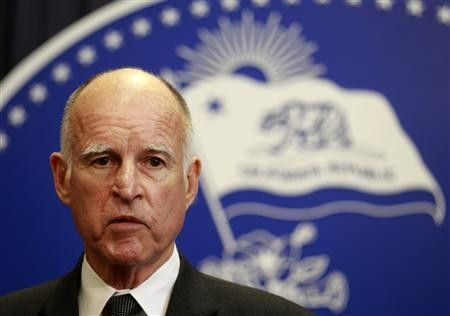California Referendum Attempts to Vote Away Gay History Law

California's new Fair, Accurate, Inclusive and Respectful (FAIR) Education Act, signed by Gov. Jerry Brown last month is set to go into effect as of the first of the year, but a referendum may stand in its way. The lesbian, gay, bisexual and transgender (LGBT) civil rights movement is already facing a possible referendum if more than a half-million signatures are gathered by Oct. 12.
Gov. Brown signed the Senate Bill 48 July 14, 2011, to make "history...honest." The FAIR Education Act requires that LGBT Americans and people with disabilities are included and recognized for their important historical contributions to the economic, political and social development of California.
"This bill revises existing laws that prohibit discrimination in education and ensures that the important contributions of Americans from all backgrounds and walks of life are included in our history books," said Gov. Brown. "It represents an important step forward for our state, and I thank Senator Leno for his hard work on this historic legislation."
"Today we are making history in California by ensuring that our textbooks and instructional materials no longer exclude the contributions of LGBT (lesbian, gay, bisexual and transgender) Americans," Sen. Leno said in a statement.
Leno's office cited research which explains that students who learn about LGBT people are more likely to report their schools are inclusive and fair, reports CNN.com.
But not everyone is happy about the proposed law.
"It is an outrage that Governor Jerry Brown has opened the classroom door for homosexual activists to indoctrinate the minds of California's youth, since no factual materials would be allowed to be presented," Rev. Louis Sheldon, chairman and founder of the Traditional Values Coalition, said in a statement.
"If parents don't already have their children out of public schools, this should cause them to remove them," he said.
On July 25, California officials gave the 'OK' for anti-gay discriminatory groups to begin collecting signatures for the referendum against LGBT teachings in public schools.
Attorney General Kamala Harris titled the proposal, "Referendum to Overturn Non-Discrimination Requirements for School Instruction." If signed by enough registered voters, the petition will challenge the law previously approved by Legislature and Governor. But in order for the law against LGBT teachings to go into effect, it must be approved in the next statewide election.
"If signed by the required number of registered voters and filed with the Secretary of State, this petition will place on the statewide ballot a challenge to a state law previously approved by the Legislature and Governor. The law must then be approved by a majority of voters at the next statewide election to go into effect.
"The law would require school instructional materials to recognize societal contributions of various groups; and would prohibit school instructional materials that reflect adversely on persons based on their ethnicity, gender, sexual orientation and other characteristics," said Harris.
Equality California, which sponsored the teaching bill, is working towards thwarting efforts of signatures on the referendum. The group has requested $50,000 for supporters "to launch a statewide education program."
"If you spot a Stop SB 48 organizer gathering signatures in your community, let us know on Facebook," said Roland Palencia, Equality California Executive Director.
"California has a long legacy of leading the nation on issues of inclusion and justice and the FAIR Education Act represents the next step in that tradition," said Palencia.
"This attack on the FAIR Education Act isn't just an attempt to censor the contributions of LGBT people and people from the history books; it's also an attempt by our opponents to revive lies based on prejudice about LBGT people being dangerous to children. Over the coming months, we are prepared to prevent this measure from reaching the ballot by engaging Californians in a conversation about our opponent's real motivations and the truth about what the FAIR Education act does and does not do."
© Copyright IBTimes 2025. All rights reserved.





















